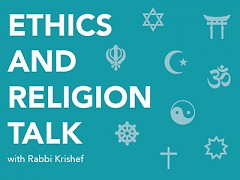The Rev. Sandra Nikkel, head pastor of Conklin Reformed Church, responds:
It takes courage to admit to wrongdoing but it takes more courage to forgive oneself. We need the courage to accept God's forgiveness and believe that he will not hold this sin against us. This is where faith is needed. Because we seldom experience this kind of unconditional love, we need faith to believe that in Jesus Christ God promises the full forgiveness of our sins and cleansing from all unrighteousness. Here is what He promises to do for us if we confess our sins: ‘If we confess our sins, he is faithful and just and will forgive us our sins and purify us from all unrighteousness’ (1 John 1:9).
Father Michael Nasser, who writes from an Eastern Orthodox perspective and is Pastor of St. Nicholas Orthodox Christian Church, responds:
We are always encouraged to forgive all, principally by the inspiration of following Christ’s example of ultimate and complete forgiveness shown from the Cross. In our view as expressed most eloquently by St. Paul in his Epistles, what we could not achieve under the Old Testament Law through the call to obedience and duty, we can achieve through the power of knowing how powerfully we are loved by God. This high calling to love and forgive does not exclude ourselves. Even if forgiving ourselves is harder than forgiving anyone else, we do not put ourselves above our Lord and Creator. We repent of our own lapses of love and virtue, meaning we both acknowledge the wrongness of those lapses and also commit ourselves to going in a different direction. Then God offers us His love and forgiveness, and we humble ourselves to receive it. We learn from His love for us how to love ourselves. We forgive ourselves because He forgives us.
Father Kevin Niehoff, O.P., a Dominican priest who serves as Adjutant Judicial Vicar in the Diocese of Grand Rapids, responds:
The Roman Catholic Church provides a beautiful prayer of absolution. The prayer is: ‘God the Father of mercies, through the death and resurrection of the Son, has reconciled the world to Himself for the forgiveness of sins. Through the ministry of the Church may God grant you pardon and peace, and I absolve you from your sins, in the name of the Father, and of the Son, and of the Holy Spirit. Amen.’
God is the grantor of forgiveness, and God is freely and generously merciful. The problem is that the finite or human mind does not forget while the infinite wipes the slate clean after each confession of sins.
Once someone has confessed his or her sins and I recite the prayer of absolution above, the slate is clean… God has forgotten. The best way to forgive one’s self is to ask God for forgiveness and then pray to God to help forgive one’s self.
The Reverend Colleen Squires, minister at All Souls Community Church of West Michigan, a Unitarian Universalist Congregation, responds:
On my 24th birthday my father called to wish me a happy birthday. I was with my friends celebrating and I almost did not take the call. When I got on the phone my father told me he was in the hospital because earlier that day he had a stroke driving to work. He would not let anyone tell me because he did not want to spoil my birthday. The next morning my father died. To this day I re-live the ‘what ifs’ if I had not taken that phone call. Even though I took the call I still live with my regret of coming so close to having missed the last time I could have spoken to my dad, it would have been the greatest regret in my life.
I think we are all human and therefore we will make mistakes, large and at times terrible mistakes. Facing these events head on, owning them, learning from them is the best path to self-forgiveness. And if we are ever given a second chance, hopefully we will make different and better choices. When I come to the end of my life I hope I will have forgiven myself for all the mistakes that I have made but more importantly I hope I will have lived a life with as few regrets as possible.
My response:
Take these steps to forgiveness:
- Make a list of the things you have in mind.
- If they involve other people, go to them and apologize, sincerely and unconditionally.
- Make restitution, if appropriate and possible.
- Take the burden to God and repent sincerely and unconditionally.
- Do not repeat the behavior.
And finally, doing good things will help you forgive yourself for being the person you once were by proving to yourself that you are different. So give charity. Worship in community. Invite people over for a Sabbath meal. Volunteer somewhere.
This column answers questions of Ethics and Religion by submitting them to a multi-faith panel of spiritual leaders in the Grand Rapids area. We’d love to hear about the ordinary ethical questions that come up on the course of your day as well as any questions of religion that you’ve wondered about. Tell us how you resolved an ethical dilemma and see how members of the Ethics and Religion Talk panel would have handled the same situation. Please send your questions to [email protected].
The Rapidian, a program of the 501(c)3 nonprofit Community Media Center, relies on the community’s support to help cover the cost of training reporters and publishing content.
We need your help.
If each of our readers and content creators who values this community platform help support its creation and maintenance, The Rapidian can continue to educate and facilitate a conversation around issues for years to come.
Please support The Rapidian and make a contribution today.
